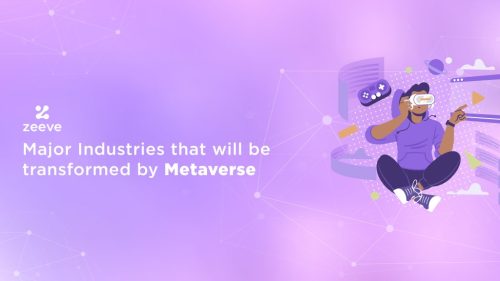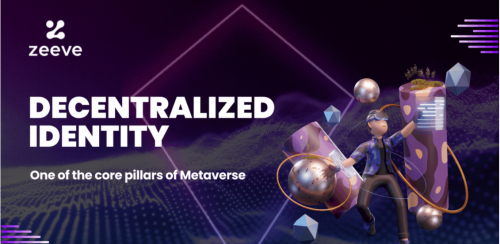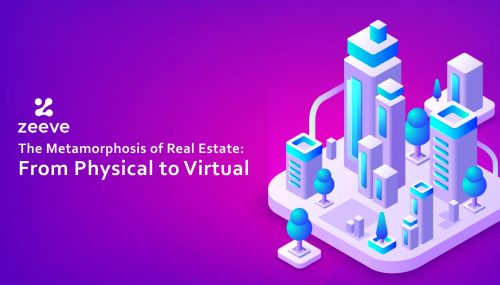Your identity in the Metaverse
Privacy is a fundamental human right and a prerequisite for full self-expression and autonomy. Total anonymity is not always practical for a functional society since evidence of ownership and right of access need some kind of identification and/or reputation (and social score?). On the other hand, pseudonymity allows for the right to privacy for one’s true self while also allowing for the “right to access”. Separation of identities between our true selves, our social selves, and our working selves may afford both privacy and access.
Individual autonomy as well as the advancement of society as a whole, are harmed by the absence of privacy. Consider a surveillance state where citizens are afraid of being persecuted, imprisoned, or worse, physically injured if they voice opposing viewpoints.
Authoritarian regimes have a history of instilling fear in public, preventing citizens from freely expressing their opinions, going to the streets in protest, and propagating alternative views. This may be observed in areas like academics and businesses. Many scholars, for example, will be influenced by their superiors and will only push back – out of fear of retaliation or exclusion from their field.
Autonomy
The “right to access” is essential for a functional society, just as privacy is required for an open society. The capacity to verify one’s ownership of a valuable asset, credential or even clearance to certain digital and physical areas is understood as the right to access.
Individual autonomy requires the ability to access and verify ownership. The capacity to verify property ownership, for example, must be linked to a particular person. There would be no way to correlate property ownership between two apparently similar persons in an anonymous setting.
The right to access also applies to how we handle our finances and bank accounts. Our individual worth would be open to any anonymous actor if we don’t have the capacity to show ownership.
The capacity to show citizenship to governments is another example. Most individuals in today’s society have passports from certain countries that allow them to travel across borders. Being “undocumented,” or not having evidence of nationality, is not the same as being stateless, although a lack of identifying papers such as a birth certificate might lead to statelessness.
It should be feasible to protect one’s fundamental human right to privacy while having the ability to access information and verify ownership. This is accomplished via numerous degrees and kinds of identification, which have been made much more accessible thanks to distributed networks and modern technology. What if a single person or organisation could establish and maintain various pseudonyms that granted access to different things?
Pseudonymity
Pseudonymity is a key aspect of the metaverse, where identity is based on avatars, digital assets, and activities rather than physical presence. All avatars start off with complete pseudonyms. The individual who adopts the avatar might stay completely anonymous or link portions or all of his identity.
Let us talk about Twitter, which is like a play-to-earn game. Those who thrive at this game gain influence, valued in both monetary and power terms. Twitter’s digital asset is its follower count. The number of followers is similar to a bank account filled with non-fungible, non-tradable tokens that generate interest via influence and, eventually, money.
Players can only win the Twitter game by mastering the game’s mechanics – providing amazing content — not by relying on genetic advantages. A pseudonym’s selected characteristics may not guarantee exceptional material or even attention.
Arvind Narayanan’s concept of 33 bits of Entropy is an excellent way to explain degrees of pseudonymity. With 7.5 billion individuals on the planet, determining a person’s identity requires just 33 pieces of information. There are only 7.5 billion people on the planet, thus 2^33 equals 8.6 billion. As a result, you can de-anonymize someone using 33 bits of independent data. You know who they are if they have 0 pieces of anonymity left. They are 1 out of 2^10 or 1 out of 1,024, with 10 bits of anonymity remains. When you consider the number of platforms we use and the quantity of data collected on each and every one of them every day, 33 bits of data isn’t much.
In the physical world, your identity follows you everywhere. It’s something you’re born with. Your identity stays unchanged throughout your life. Your passport is your means of identity, and if you don’t have it, you’re out of luck!
Identity
That is acceptable to the majority of people in developed nations. They have great prestige all around the globe because of their identity. You may travel freely anywhere in the world if you hold an American passport (with some exceptions).
Of course, you may always travel to another nation and acquire a new ID, but your true identity will always stay the same. It is unchangeable. You don’t have control over your own identity!
When you attempt to define identity, the difficulty becomes evident. What exactly is identity? Is it something you’re born with or choose to have?
You were born with a body that you will never be able to get rid of. However, your mind is constantly changing, and you have control over how you think. When you define identity as your intellect and a collection of ideas, you begin to see that your identity is always changing.
You make decisions about who you are and who you want to be throughout your life. Your physical self, on the other hand, will never change. You may actively change your spiritual identity in the actual world, but not your physical one. Governments provide you with identification. In other words, nation-states confer your identity on you. Your mind, body, and identity are three distinct entities in the metaverse. You have complete control over all of them. You have the freedom to select who you want to be and how you want to appear.
You pick your identity in the metaverse!
People are still evaluated in the real world based on their skin colour, gender, and other factors. This is not the case in the metaverse, where you have the freedom to select your own identity. We are solely rated in the metaverse depending on our output. The quality of our work is crucial!
We create a work atmosphere devoid of bigotry, prejudice, and bias by not exposing our real-world identities and instead employing avatars.
Satoshi Nakamoto
Satoshi Nakamoto is the person (or individuals) who invented bitcoin and wrote the bitcoin white paper. This is a highly impactful move that has had a lot of long-term ramifications for Bitcoin.
Most importantly, it safeguarded the genuine identity of the individual (or people) responsible for the effort. They might have been assaulted, prosecuted, and the project could have been shut down if their names had been exposed. As a result, the whole network was secured.
Working under the pseudonym Satoshi Nakamoto added to the project’s ethos. Giving the art a name creates a sense of empathy that there is a real person (or persons) behind it. The concepts become more tangible as a result of this.
Pseudonymity in Crypto
Many people in the crypto community use pseudonyms for privacy reasons, either to conceal their true identity as part of a drive toward self-sovereignty or to protect their privacy and security. Bitcoin appeals to many people because pseudonymity is built into the system.
When you create a bank account, you must provide identification that connects your financial activities to your identity and is neither anonymous nor pseudonymous. When you make a Bitcoin wallet, you generate an alphanumeric address that enables you to send and receive bitcoin and is publicly viewable on the blockchain to the rest of the world. However, since financial forensics on your public address may be connected back to your real-world identity, this address offers pseudonymity rather than anonymity.
The discussion between privacy activists and policymakers over the benefits and drawbacks of pseudonymous and anonymous cryptocurrencies is continuing, but given the rapid pace of technological advancement and widespread acceptance of crypto, a consensus should be reached soon.






Responses